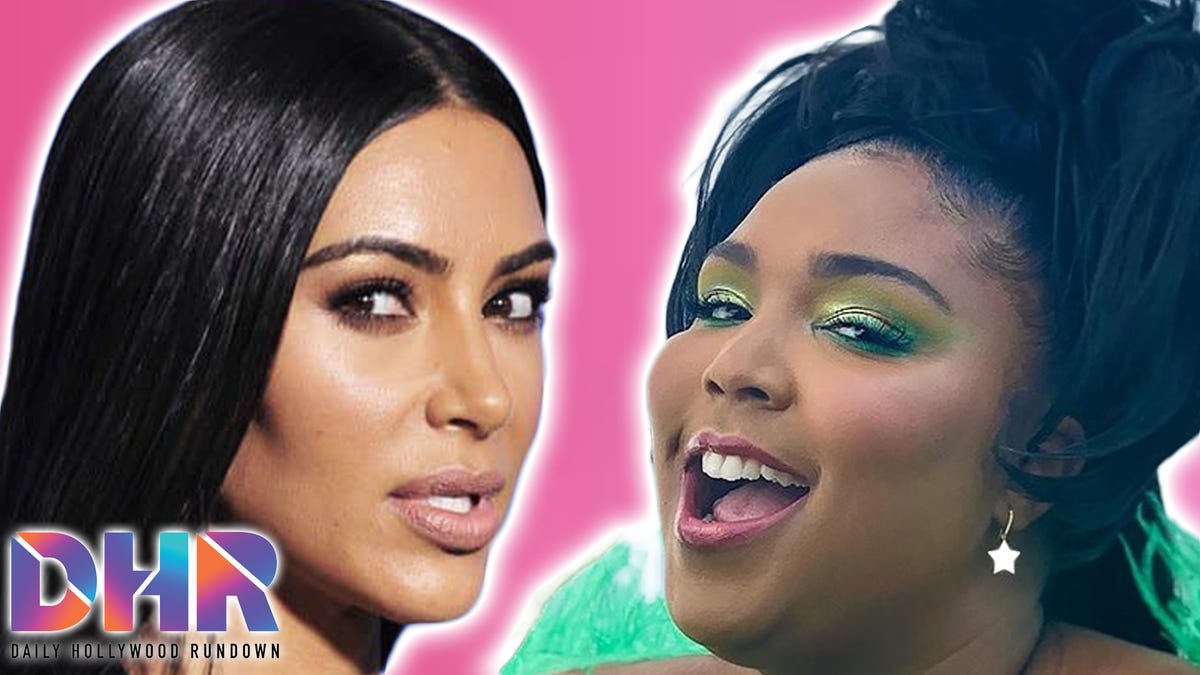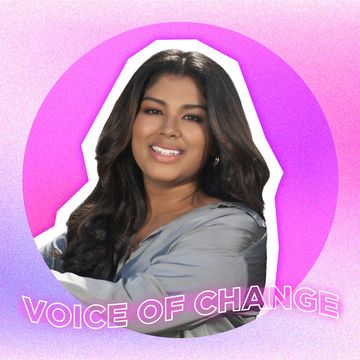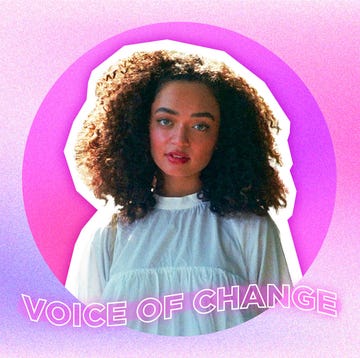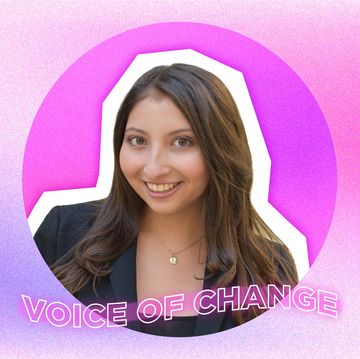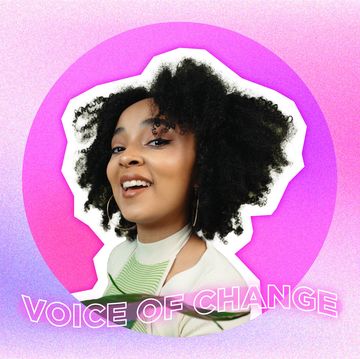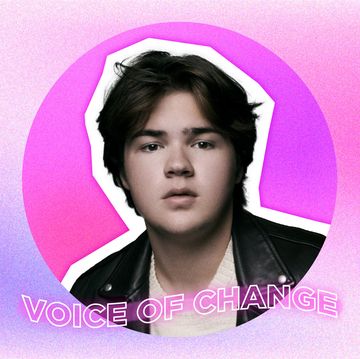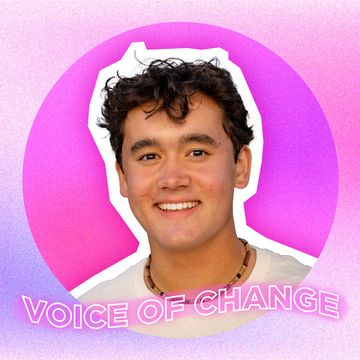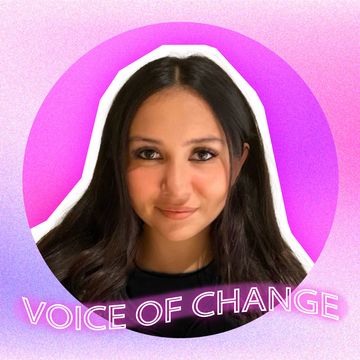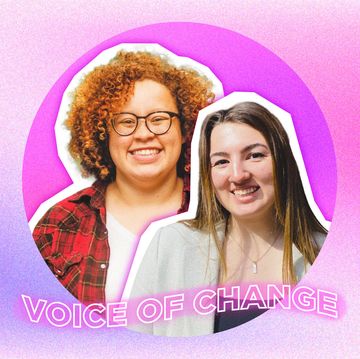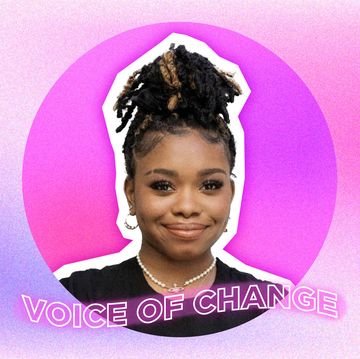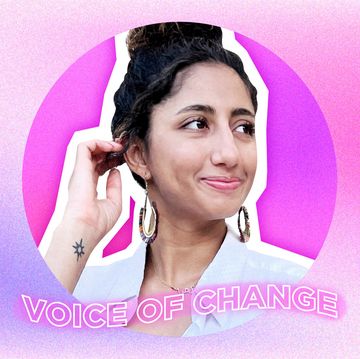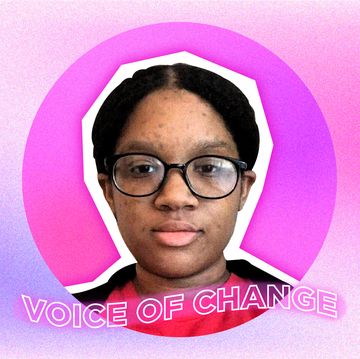Even during the most challenging times in history, it's important to highlight those who are continuing to follow their dreams and are taking strides to make the world a better place. Each month, Seventeen is honoring one young person as a Voice of Change, someone who is making a difference in their community and the world at large.
In January 2020, Madison Garrett was scrolling through various news headlines when she came across one particularly staggering report. The feature in question detailed the rising suicide rate among Black adolescents, a statistic that Madison quickly realized was not universally known or discussed in her community.
According to the National Institute of Mental Health, suicide is the second-leading cause of death in Black children aged 10 to 14, and the third-leading cause in Black children aged 15 to 19. “By combining data from 2001 to 2015, researchers were able to examine suicides among children ages 12 and younger and found that Black children were more likely to die by suicide than their White peers,” the report explains. Further research found that suicide attempts among Black adolescents increased by nearly 80 percent between 1991 and 2019.
Just months after Madison first discovered the escalating suicide rate, the United States was in the height of the COVID-19 pandemic and Black Lives Matter civil rights protests. In a lifelong pursuit to help others, and in realizing that these events had a significant, emotional impact on young people, Madison knew she had to take action to better educate her community on mental health issues. “When I engaged in conversation with my peers, and even the adults in my life, they were not aware of this traumatic statistic of the rising suicide rate,” the 17-year-old shared with Seventeen.
As a Girl Scout Ambassador working towards her Gold Award — the highest honor in Girl Scouting — Madison had the opportunity to engage in a research project, where she gave workshops and presentations on mental health to her Bed-Stuy, Brooklyn-based troop. She spoke about the significance of self-love and how to protect your emotional and mental health. She also launched a blog with mental wellness tips, and wrote articles on her experiences as a young Black woman for her local newspaper, The New York Beacon. Then in December 2020, she organized a virtual seminar on the state of Black adolescent mental health.
Madison was recognized by the Girl Scouts of Greater New York — of which she’s been a member for over a decade — as the 2021 Future Woman of Distinction for her achievements in community service, academics, and leadership. Today, on World Teen Mental Wellness Day, we applaud Madison’s inspiring work and all that she’s done to disrupt the stigma of mental health issues in the young Black community. It is because all of this and more that Madison is honored as one of Seventeen’s Voices of Change.
17: How did you first raise awareness about mental health among Black youth?
Madison Garrett: I was involved in the Girl Scout Leadership Institute program run by Leslie Field. I had the opportunity to work on a research project, and knowing that so many people are unaware of this rising suicide rate [among Black adolescents], I created a presentation on the cause of African American suicide and its greater effects. After I created this project and I presented it, I earned first place. So I knew that this was an issue that was underrated and a lot of people were unaware of. Secondly, [it is] an issue that I needed to continuously advocate for. So, I dedicated a year of my life to speaking out about mental health.
17: How did you then bring awareness to your community?
MG: As an aspiring journalist, I knew I needed to write an article. I pitched to The New York Beacon, a Black-owned newspaper. My first-ever article, “An Ode To The Neglected Young Black Girl,” spoke about the issues that young Black women face and how suicide is stigmatized within the Black community. Secondly, I knew I needed to write an article solely dedicated to the suicide rate. So I wrote another article on Black mental health titled, “The Suffering of the Silenced.” I wrote about the issues that young Black children face, such as scrolling down their [Facebook] timeline and seeing so many videos of young Black men and women being shot by police. I then created a blog providing mental health tips [and] created the Afro-Caribbean Student Association at my high school, so that the Black students at my school can have an outlet to express themselves in such times of turmoil.
I knew I had to bring [mental health awareness] back to my home and my [Girl Scouts] troop. So at Troop 2261, I spoke to the Black girls and presented mental health research and I taught them the value of loving themselves, and loving their noses, their hair, and their skin, and just how important it is to realize that Black is beautiful. And then I did some yoga with them, of course.
17: What are you most proud of achieving with your mental health work?
MG: One of the biggest components of my project was a virtual seminar I held for all ages. This was something that I worked on for about two to three months, and brought together people from across the country. Nate Sherfinski, a representative of then-Brooklyn borough president Eric Adams, spoke about the importance of raising awareness to Black mental health. Audrey Sealey, a woman at my church and a nurse practitioner, spoke to parents and teenagers about anxiety and depression.
My seminar allowed for a genuine conversation to transpire. I had elders share how they started to value mental health as the pandemic hit. I had parents speak about how they're scared and don't know what to do when their children shut them out. The teenagers who were present spoke about their issues with mental health — how school, remote learning, the pandemic, and just so many components were affecting their mental health.
[I’m most proud of] spreading awareness about mental health issues. I'm left with gasps, widened eyes, or agape mouths when I inform people that the suicide rate is rising. Allowing for conversation to take place and stopping the [idea] that mental health is not for Black people or that mental health is a white issue when everyone goes through it — that's my proudest moment.
17: Did you put on all these events by yourself?
MG: I will give credit to my mom. Her motivational talks when I’d doubt myself were definitely vital. But I was the sole leader. With the seminar, I pitched to different politicians [such as] my Congressman and my assemblyman. It just so happened that a representative of Eric Adams [responded] the fastest. Audrey Sealey was at my church. My principal allowed me to have the club at school where we have discussions on self-love and body image. [The New York Beacon] gave me the opportunity to use my voice. So I definitely had help along the way, but I was the sole motivator.
17: How has the response to your mental health seminars been among your peers?
MG: They're at first surprised, but then they start acknowledging that this is something that's actually taking place in our community. It’s something that needs to be talked about. I joined the Downtown Community Television Center, which is a film program for young New Yorkers. I received an opportunity to create a documentary centering on Black mental health, so I did research on the history of slavery, civil rights, and the trauma that had on Black adolescent mental health. I also interviewed Black teenagers around me because I want to show that kids who look just like us, who act like us, and who are of our descent, have attempted suicide. It's not something that's on television or taboo.
I knew my mental health work had an impact when my film teacher notified me that she wanted [me] to speak to children in foster care. I know that my work has absolutely made a difference, even [among] people I've never met before, who I've never had a discussion with. They've been touched by my work and understand the value of speaking out about such issues.
17: How do you protect your own mental and emotional health?
MG: As a Christian, I make sure to pray, take deep breaths, read my Bible, and really meditate. I speak with my family and my support system, who calm me down when I have anxiety.
17: How do you balance being a senior in high school and a community leader?
MG: It really is about time management. Of course, I have a calendar on my door with all the dates of what I need to prioritize. It’s also about passion. I don’t dread community work because I love making a difference in others' lives. I don't hate going to Girl Scouts or taking part in the National Council of Negro Women because it's something I value. When you have so many tasks to do, you have to remember that you love doing it. [That way,] there's no problem prioritizing and making sure every single thing gets done.
17: How would you say you've grown as a community leader?
MG: I've grown to know that I can make a difference. Oftentimes as a young person, we're told that we can't really make a difference, that we don't really have a voice and that we shouldn't bother making change because adults in Congress or adults in higher positions of power have the ultimate say. But I've learned that simply having a conversation can make a difference. Telling a little Black girl that she is beautiful can make a difference. That's a thought that formulates in their mind [and] will stay with them. I've learned that my voice is real and it can make a difference in the lives of others.
17: What else do you have planned when it comes to mental health awareness?
MG: I had the opportunity of being employed by Sesame Flyers International, a nonprofit organization [that promotes youth empowerment]. I'm the editor-in-chief and founder of [their] Instagram teen magazine called “Gen Z’s Voices.” In my role, I continuously advocate for issues that are overlooked and neglected. So we've had articles about sickle cell awareness, and the school-to-prison pipeline and how that affects Black, minority, and low-income students. We've had articles on the lack of minority representation in the media and theater.
17: You mentioned you’re interested in pursuing a career in journalism. What is your ultimate career goal?
MG: That’s what I’m deciding now. Writing is such an important tool because it can reach so many people in so many different ways. I could go into broadcast journalism, but all I know is that I really want to make a difference and help others around me. [If] I'm a broadcast journalist, I can brighten someone's day on a morning show. If I'm a print journalist, I can expose truths. All I want to do is make the world a better place.
17: What does being a Voice of Change honoree mean to you?
MG: It means to me that no matter your race, sex, religion, or age, you can truly make a difference in your community. You don't have to have a certain amount of followers. If you have a message that you’re passionate about and that deserves to be heard, it’s time to voice your issues.
Leah Campano is an Associate Editor at Seventeen, where she covers pop culture, entertainment news, health, and politics. On the weekends, you can probably find her watching marathons of vintage Real Housewives episodes or searching for New York City’s best almond croissants.

